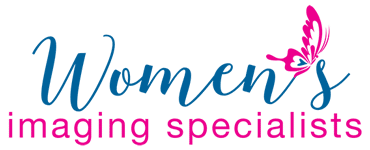The decision to give birth to a child is definitely a personal one. The ongoing debate between reproductive history and the risk of cancer is a controversial topic. Many women have now questioned the relationship between their choice to not bear a child and their associated risk of developing breast cancer.
Studies indicate that the risk of developing breast cancer can be correlated to the individual’s exposure to the hormones endogenous estrogen and progesterone which are produced in the ovaries.
Reproductive factors including those that increase the levels or duration of exposure to the hormones responsible for stimulating cell growth have been attributed to an increased risk of breast cancer.
Considerations include beginning menstruation at a young age, late onset of menopause or any other factors that allow the breast tissue to be exposed to higher levels of hormones for lengthy periods of time including advanced age at first pregnancy or never giving birth to a child.
Pregnancy & Breastfeeding Reduce Exposure to Hormones Associated with Breast Cancer
Pregnancy and breastfeeding both of which reduce a women’s exposure to endogenous estrogen have long since been associated with the decreased risk of developing breast cancer.
Research data supports the evidence that both pregnancy and breastfeeding directly affects the cells within the breast tissue causing them to mature so they can produce milk. Researchers believe that these mature cells are much more resistant to changing from healthy cells into cancer cells than the previously immature cells.
Other pregnancy related components associated with a reduced risk of developing breast cancer as a woman ages include:
• Early age at first full term pregnancy – especially women who have a first full-term pregnancy before the age of 20. The risk of developing breast cancer is approximately 50% less than a woman who has her first full term pregnancy after the age of 30. It should be noted that this risk reduction applies to hormone receptor-positive cancer and has no bearing on the risk of developing hormone receptor-negative breast cancer.
• Increased number of births: The risk of developing breast cancer decreased with the number live births for example a woman who has given birth to five children or more has 50% less chance of developing breast cancer than a woman who has never given birth. Evidence suggests that the increased number of births may also be limited to the risk of receptor-positive breast cancer.
• History of preeclampsia: Research indicates that a woman who experienced preeclampsia (a complication that occurs during pregnancy when the patient develops high blood pressure and excessive amounts of protein in the urine) may also decrease her risk of developing breast cancer as she ages.
• Duration of breastfeeding: research indicates that breastfeeding for at least a year has been directly associated with the decreased risks of developing both hormone receptor positive-breast cancer and hormone receptor-negative breast cancers.
Pregnancy & the Increased Risk of Other Types of Cancers
Research supports the evidence that states a women who carries a full-term pregnancy reduces her risk of developing endometrial cancer and which continues to decline with each full-term pregnancy.
Pregnancy however has been attributed to an extremely rare tumor called gestational trophoblastic tumor. This rare tumor begins in the uterus where the cancer cells grow into the tissues that begin to form following conception.
Evidence suggests that there are some pregnancy related factors which may increase the risk of other types of cancer but further studies are needed to prove or disprove that exposure to certain hormones may contribute to the risk of tumors.
3D Mammograms & Ultrasounds in Athens-Oconee, Watkinsville & Eagles Landing, Stockbridge, Georgia
Contact Women’s Imaging Specialists or schedule your next breast screening today!


